![生态学(第7版 影印版) [Ecology:Concepts and Applications(Seventh Edition)]](https://pic.tinynews.org/11978134/57d25814N4e3c6bb7.jpg)

具体描述
内容简介
Manuel C. Molles Jr. is an emeritus Professor of Biology at the University of New Mexico, where he has been a member of the faculty and curator in the Museum of Southwestern Biology since 1975 and where he continues to write and conduct ecological research. He received his B.S. from Humboldt State University and his Ph.D. from the Department of Ecology and Evolutionary Biology at the University ofArizona. Seeking to broaden his geographic perspective, he has taught and conducted ecological research in Latin America, the Caribbean, and Europe. He was awarded a Fulbright Research Fellowship to conduct research on river ecology in Portugal and has held visiting professor appointments in the Department of Zoology at the University of Coimbra, Portugal, in the Laboratory of Hydrology at the Polytechnic University of Madrid, Spain, and at the University of Montana's F1athead Lake Biological Station.OriginalManuel C. Molles Jr.y trained as a marine ecologist and fisheries biologist, the author has worked mainly on river and riparian ecology at the University of New Mexico. His research has covered a wide range of ecological levels, including behavioral ecology, population biology, community ecology, ecosystem ecology, biogeography of stream insects, and the influence of a large-scale climate system (El Nino) on the dynamics of southwestern river and riparian ecosystems. His current research concerns the influence of climate change and climatic variability on the dynamics of populations and communities along steep gradients of temperature and moisture in the mountains of the Southwest. Throughout his career, Dr. Molles has attempted to combine research, teaching, and service, involving undergraduate as well as graduate students in his ongo ing projects. At the University of New Mexico, he has taught a broad range of lower division, upper division, and graduate courses, including Principles of Biology, Evolution and Ecology, Stream Ecology, Limnology and Oceanography, Marine Biology, and Community and Ecosystem Ecology. He has taught courses in Global Change and River Ecology at the University of Coimbra, Portugal, and General Ecology and Groundwater and Riparian Ecology at the Flathead Lake Biological Station. Dr. Manuel Molles was named Teacher of the Year by the University of New Mexico for 1995-1996 and Potter Chair in Plant Ecology in 2000. In 2014, he received the Eugene P. Odum Award from the Ecological Society of America based on his "ability to relate basic ecological principles to human affairs through teaching, outreach and mentoring activities."
内页插图
目录
1 Introduction to Ecology: Historical Foundations and Developing FrontiersSection 1 Natural History-and Evolution
2 Life on Land
3 Life in Water
4 Population Genetics and Natural Selection
Section 2 Adaptations to the Environment
5 Temperature Relations
6 Water Relations
7 Energy and Nutrient Relations
8 Social Relations
Section 3 Population Ecology
9 Population Distribution and Abundance
10 Population Dynamics
11 Population Growth
12 Life Histories
Section 4 Interactions
13 Competition
14 Exploitative Interactions: Predation, Herbivory, Parasitism, and Disease
15 Mutualism
Section 5 Communities and Ecosystems
16 Species Abundance and Diversity
17 Species Interactions and Community Structure
18 Primary and Secondary Producrion
19 Nutrient Cycling and Retention
20 Succession and Stability
Section 6 Large-Scale Ecology
21 Landscape Ecology
22 Geographic Ecology
23 GlobalEcology
Appendix Statistical Tables
Glossary
References
Photo Credits
用户评价
我是一名生态学研究的爱好者,一直在寻找一本能够拓展我视野、深化我理解的著作。《生态学(第7版 影印版)》的名字引起了我的注意。我了解到生态学是一门跨学科的科学,它融合了生物学、地理学、化学、物理学等多个领域的知识。因此,我非常期待这本书能够在保持生态学核心内容的同时,也能够适当提及与生态学相关的其他学科的研究方法和最新进展。我希望书中能够包含一些关于生态学模型构建和数据分析的介绍,这对于进行科学研究至关重要。同时,我也很想了解书中是否会讨论到生态学在环境保护、自然资源管理、农业生态工程等领域的实际应用案例,这些案例能够让我更直观地感受到生态学的重要性。对于我这样有一定基础的读者来说,第七版意味着内容的更新和完善,或许会加入一些近年来最新的研究成果和理论观点。影印版则保证了原著的学术严谨性,这一点我非常看重。我希望这本书能够成为我进行更深入研究的有力工具,帮助我理解复杂的生态过程,并为解决现实世界中的生态问题提供科学依据。
评分我对《生态学(第7版 影印版)》这本书充满好奇,特别是“第7版”这个标签,它意味着这本书经过了多次的修订和完善,内容一定非常充实和前沿。我一直以来都对地球上生命的多样性和它们之间错综复杂的联系感到着迷,而生态学正是解答这些疑问的钥匙。我希望这本书能够为我打开一扇理解宏观生态过程的窗户,比如全球碳循环、水循环等是如何影响地球生命的。我对书中关于生态进化与生态过程之间关系的探讨也充满期待,了解它们是如何相互作用并塑造了我们今天看到的生物世界的。作为一名读者,我希望能够通过这本书学习到如何从科学的角度去分析和理解环境问题,并且希望书中能够提供一些关于生态学研究方法和数据分析的实际指导,这对于我未来可能的学习方向会有很大的帮助。影印版的形式让我觉得更加贴近原著的学术风格,我相信这本书能够给我带来一次深刻的学术体验,让我对生态学这门学科有一个系统、深入的认识。
评分这本《生态学(第7版 影印版)》的封面设计就给我一种回归经典的亲切感,仿佛捧着一本厚重的学术经典。我一直对自然界的奥秘充满好奇,而生态学无疑是理解这些奥秘的最佳窗口。我一直希望能找到一本既有理论深度,又不失生动性的教材,能够引导我逐步深入这个迷人的学科。这本书的出版信息让我对它充满了期待,第七版意味着它经历了时间的沉淀和学界的检验,内容一定相当扎实。影印版则保留了原汁原味的风貌,这一点对于追求原著精髓的读者来说是极大的吸引力。我特别希望这本书能够清晰地阐述生态学的基本概念,比如种群、群落、生态系统以及生物圈等核心概念。同时,我也希望能看到书中对生态学研究方法和技术有所介绍,毕竟理论结合实践才能更好地理解和应用。我关注的另一个重点是,这本书是否能够展现生态学在当今社会面临的重大挑战中的应用价值,例如气候变化、生物多样性丧失、可持续发展等问题,生态学能否提供有效的解决方案和指导。总而言之,我非常期待这本书能成为我学习生态学的坚实基础,开启我对自然界更深层次的认知之旅。
评分作为一名长期关注环境问题的公民,我深知生态学的重要性。当我看到《生态学(第7版 影印版)》这本书时,我立刻产生了浓厚的兴趣。我希望这本书能够不仅仅停留在理论层面,更能引发读者对现实世界中生态问题的思考。例如,书中是否会深入探讨人类活动对生态系统造成的干扰,以及这些干扰可能带来的长期后果?我特别关注书中关于生物多样性保护的章节,希望能够了解当前生物多样性丧失的严峻形势,以及有哪些有效的保护策略和措施。此外,我也希望这本书能够介绍一些生态恢复的成功案例,这能够给予我们希望,并指导我们如何去修复被破坏的生态系统。从读者的角度来说,一本好的科普读物应该能够用通俗易懂的语言解释复杂的科学概念,并且能够激发读者的阅读兴趣。影印版虽然可能是学术性较强,但我相信其严谨的科学内容能够帮助我建立起对生态学的正确认知,让我能够更好地理解和参与到环境保护的行动中来。
评分拿到这本《生态学(第7版 影印版)》时,我首先被它厚重的篇幅所震撼,这预示着内容的丰富和详尽。作为一名生态学初学者,我最担心的是教材晦涩难懂,理论过于抽象,难以消化。但翻开书页,我看到了清晰的排版和适度的插图,这让我心中稍稍宽慰。我尤其关注书中对生态学原理的讲解是否循序渐进,能否从最基础的生物个体与环境的关系讲起,逐步过渡到更复杂的群落和生态系统动力学。我对书中关于物种相互作用的章节特别感兴趣,比如捕食、竞争、共生等,这些内容是理解生命世界精彩纷呈的关键。此外,我希望这本书能够详细介绍不同生态系统的特征和运作机制,例如森林生态系统、湿地生态系统、海洋生态系统等等,通过具体的案例来加深我的理解。我对书中关于生态学研究历史和发展脉络的梳理也充满期待,了解学科是如何一步步发展壮大的,能让我对生态学的价值有更全面的认识。这本书的出现,让我看到了系统学习生态学的曙光,我希望能通过它建立起一个扎实的生态学知识框架。
评分经典6666666
评分惊喜!太棒了!很有价值!
评分经典6666666
评分好
评分性价比很高
评分好书
评分很原版相比,删减的厉害!!!!!
评分经典6666666
评分读过很多英文论文,这还是第一次读原版教材
相关图书
本站所有内容均为互联网搜索引擎提供的公开搜索信息,本站不存储任何数据与内容,任何内容与数据均与本站无关,如有需要请联系相关搜索引擎包括但不限于百度,google,bing,sogou 等
© 2026 book.tinynews.org All Rights Reserved. 静思书屋 版权所有

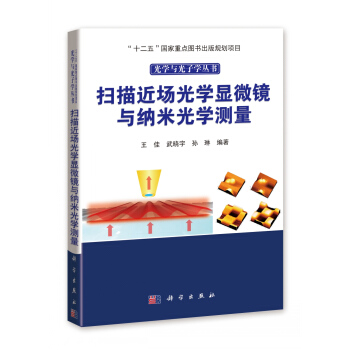

![经典行星的故事 [The Story of the Classical Planets] pdf epub mobi 电子书 下载](https://pic.tinynews.org/12097152/58ede9c4N6f7099ef.jpg)

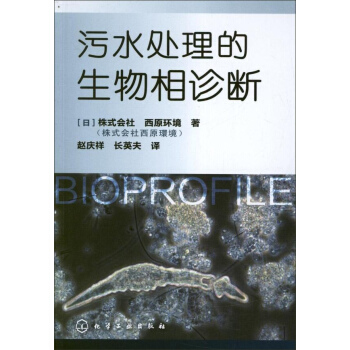
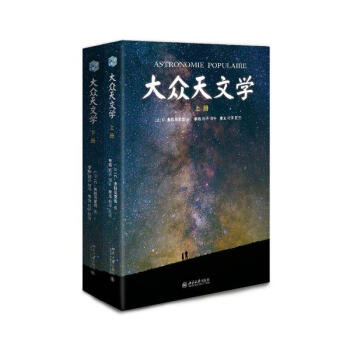




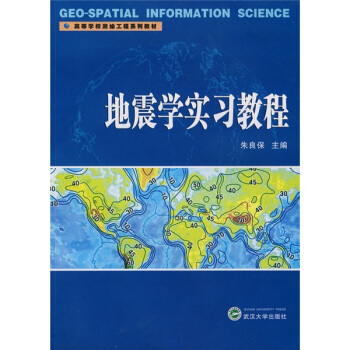
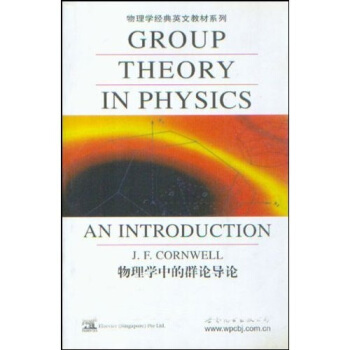

![有机化学中的光谱方法(第6版) [Spectroscopic Methodsir Organic Chemistry 6th de] pdf epub mobi 电子书 下载](https://pic.tinynews.org/10104476/5e8b0ef6-22a5-43cc-beba-393a1c70a502.jpg)
![非平衡态量子场论(英文版) [Quantum Field Theory Of Non-equilibrium States] pdf epub mobi 电子书 下载](https://pic.tinynews.org/10104526/02fba0b5-3ada-4fc5-8409-e38c4dcdc447.jpg)
![牛津英语百科分类词典系列:牛津地球科学词典 [Oxford Dictionary of Earth Sciences] pdf epub mobi 电子书 下载](https://pic.tinynews.org/10114802/e9cc17e1-f223-46ae-bb7b-80d5eaafe553.jpg)
![染色体基因与疾病 [Chromosome, gene and disease] pdf epub mobi 电子书 下载](https://pic.tinynews.org/10122736/10add117-c020-46c2-a009-1ec15744313c.jpg)
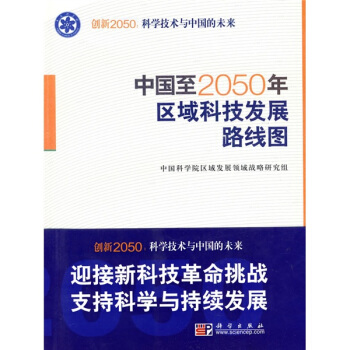
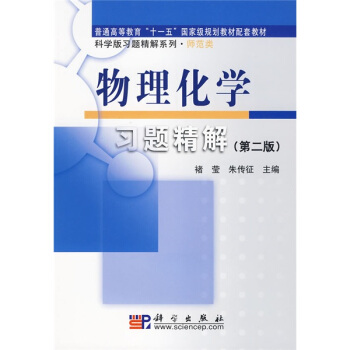
![细胞周期调控原理 [The Cell Cycle:Principles of Control] pdf epub mobi 电子书 下载](https://pic.tinynews.org/10123398/bd0d4a1a-211a-4901-9a59-e903bf8e2445.jpg)